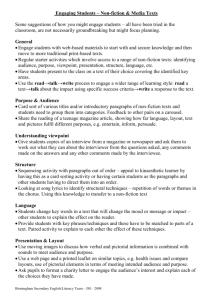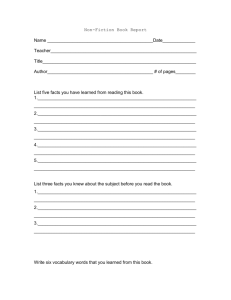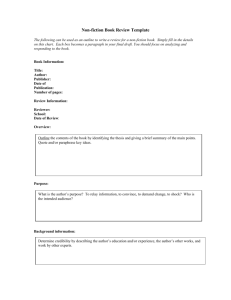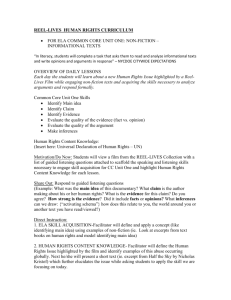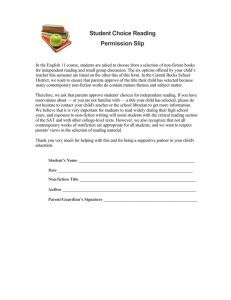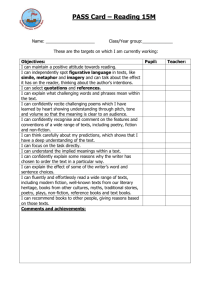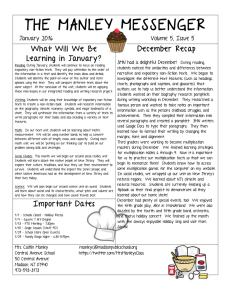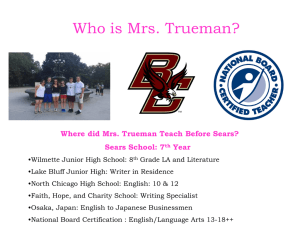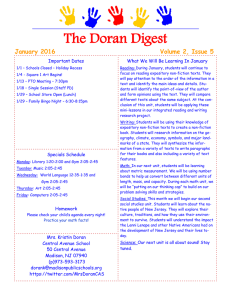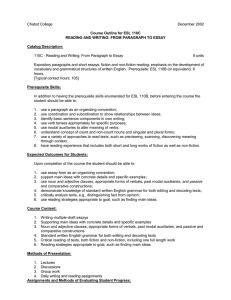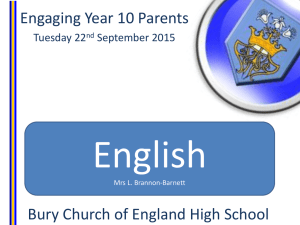English Language & Literature
advertisement
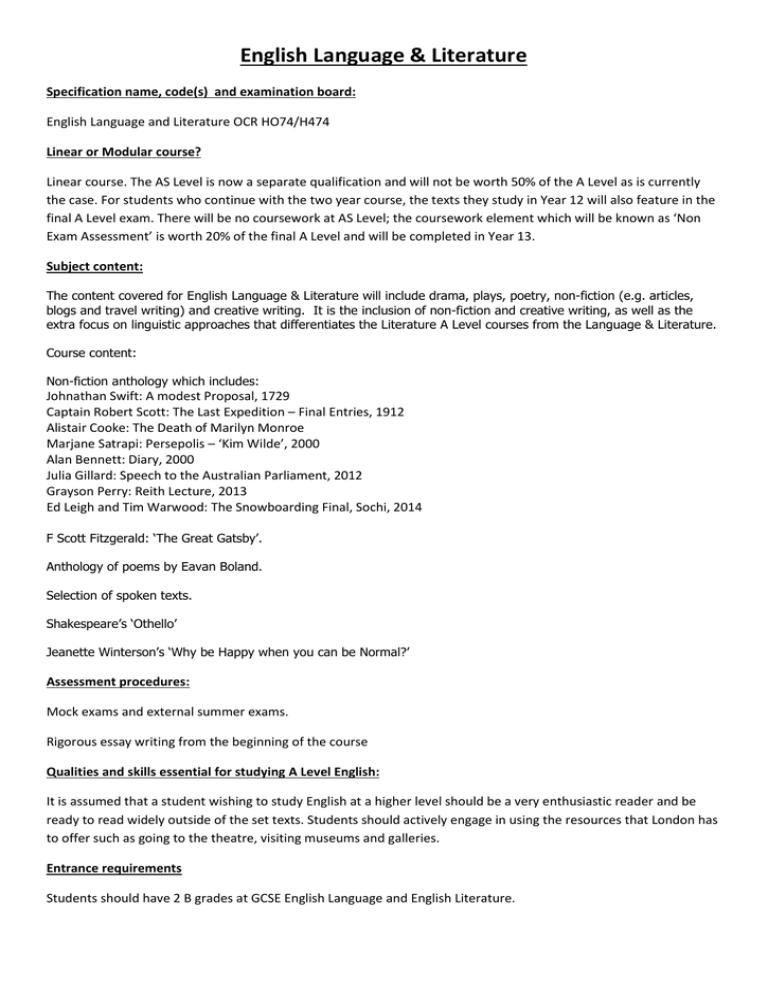
English Language & Literature Specification name, code(s) and examination board: English Language and Literature OCR HO74/H474 Linear or Modular course? Linear course. The AS Level is now a separate qualification and will not be worth 50% of the A Level as is currently the case. For students who continue with the two year course, the texts they study in Year 12 will also feature in the final A Level exam. There will be no coursework at AS Level; the coursework element which will be known as ‘Non Exam Assessment’ is worth 20% of the final A Level and will be completed in Year 13. Subject content: The content covered for English Language & Literature will include drama, plays, poetry, non-fiction (e.g. articles, blogs and travel writing) and creative writing. It is the inclusion of non-fiction and creative writing, as well as the extra focus on linguistic approaches that differentiates the Literature A Level courses from the Language & Literature. Course content: Non-fiction anthology which includes: Johnathan Swift: A modest Proposal, 1729 Captain Robert Scott: The Last Expedition – Final Entries, 1912 Alistair Cooke: The Death of Marilyn Monroe Marjane Satrapi: Persepolis – ‘Kim Wilde’, 2000 Alan Bennett: Diary, 2000 Julia Gillard: Speech to the Australian Parliament, 2012 Grayson Perry: Reith Lecture, 2013 Ed Leigh and Tim Warwood: The Snowboarding Final, Sochi, 2014 F Scott Fitzgerald: ‘The Great Gatsby’. Anthology of poems by Eavan Boland. Selection of spoken texts. Shakespeare’s ‘Othello’ Jeanette Winterson’s ‘Why be Happy when you can be Normal?’ Assessment procedures: Mock exams and external summer exams. Rigorous essay writing from the beginning of the course Qualities and skills essential for studying A Level English: It is assumed that a student wishing to study English at a higher level should be a very enthusiastic reader and be ready to read widely outside of the set texts. Students should actively engage in using the resources that London has to offer such as going to the theatre, visiting museums and galleries. Entrance requirements Students should have 2 B grades at GCSE English Language and English Literature. English Language & Literature What can I do after I study English? A degree in English is universally recognised as a ‘heavyweight’ subject which employers will recognise and be likely to give preference for in a competitive job market. A degree in Law, Architecture, History – most degree courses would welcome an A Level English qualification.

